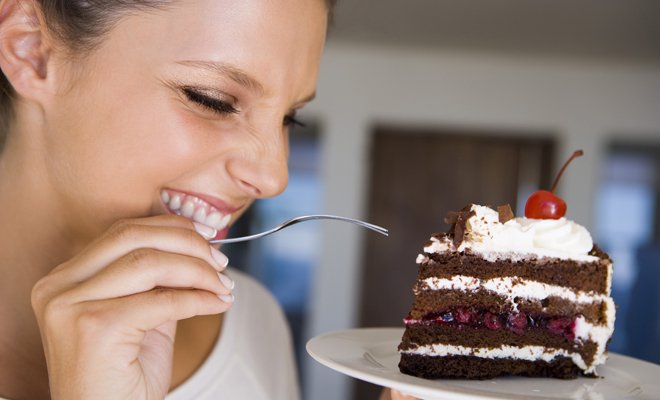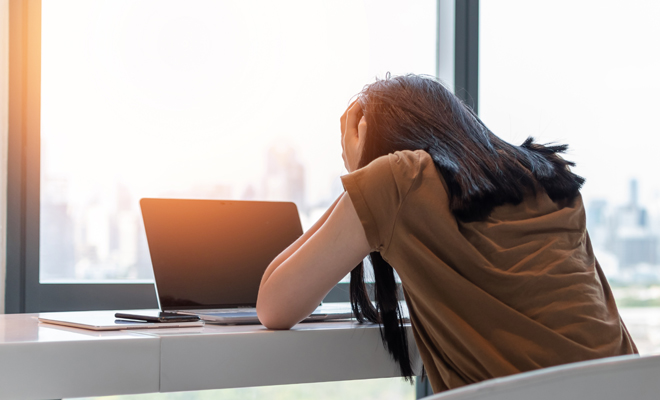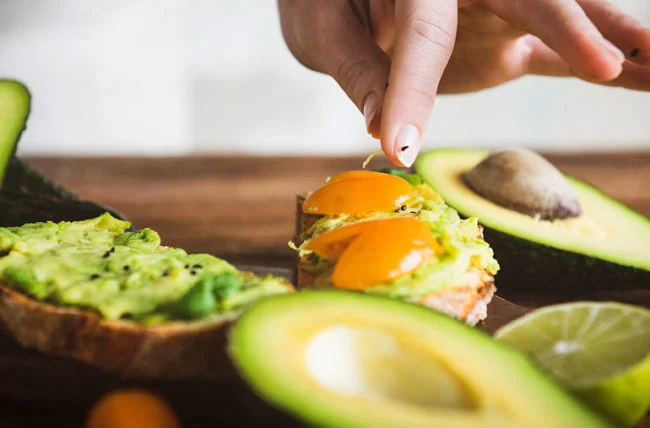It can happen to all of us that we take refuge in food to console ourselves for something that did not go as expected. Anxiety, stress, boredom, melancholy or nerves lead us to throw ourselves into food. But are we really hungry? In most of the cases, no.

Eating for anxiety is an impulse that begins in the head and not in the stomach, due to psychic mechanisms that do not lead to eating automatically, compulsively and never healthy. If I prompted you to pounce on carrots or fennel, you could be sure no one would complain: the problem is that comfort foods are almost always unhealthy and high in calories.
Why do negative emotions drive us to throw ourselves on food?
According to the psychologists, your personalized diet: disappointments or anger trigger in us an “underlying” self-criticism that weakens us, makes us feel insecure and leads us to eat out of anxiety as the only lifeline. Eating becomes the only way to get a reward or comfort.
The equation food = love has always been valid, because maternal love passes through physiological feeding. Hence, if we have difficulties, food becomes food for the soul and is exchanged for a source of love and gratification.
Then there are “addictions”, which cause behavioral disturbances, transforming a normal habit, like eating, into an unstoppable pursuit of pleasure, causing us to lose control completely. When are we most at risk of cravings?
Assuming that anxiety about eating is a behavior that derives from psychological mechanisms and is triggered above all by a difficulty in controlling negative emotions, let’s see what may be the moments that put you at greater risk of anxiety eating.
Eating for anxiety in the office
Work is an activity that often causes negative emotions, such as stress, boredom, nervousness, and frustration. It is very easy to have an argument with a colleague or receive a reprimand from a superior or simply feel depressed because the task you have been assigned does not like or bores you. So, to distract yourself or comfort yourself, you feel the irrepressible need to eat and thus you become a victim of the coffee machine and sandwiches. How to satisfy your food cravings at the office?
There are several tricks you can use to combat nervous hunger at work:
- The first defense is to always have healthy, low-calorie foods with you, such as fruit, yogurt, raw vegetables, or a small amount of nuts. In this way, when you get cravings, you can appease them with something healthy, avoiding falling into high-calorie traps.
- Make sure you take a real break at lunch time , getting away from the desk and leaving the office, for at least 10/15 minutes,
- Eat a meal that is sufficiently nutritious and satisfying and always carry water with you.
Eating for anxiety on the weekend
Friday night is approaching and you are already imagining the well-deserved prize: a relaxing night at home, in the company of a good movie and some tasty food.
You are tired, the week has been long, you have no plans and you don’t want to do anything: ordering pizza seems like an ideal solution. If it all ended with Friday night pizza, it wouldn’t be such a tragedy. The problem is that often this type of “recognition” mechanism leads to a weekend of no rules. “But it’s Friday night…” And then: “But its Saturday… but its Sunday…” You end up finding yourself, desperate and wracked with guilt, to face the balance on Monday morning. How to satisfy your desire to reward yourself with food during the weekend?
- The first thing you should do is maintain a varied every day of the week, because in this way, your mind will not feel the need to ask you for a prize during the weekend.
- Try to find gratification mechanisms outside of food: reading a good book, a walk in the fresh air, a nice massage, or anything that makes you feel pampered and rewarded for the week’s efforts.
- Try to listen to yourself and understand what leads you to throw. Perhaps one of the reasons is that you feel lonely and then eat to compensate: learn to fill your need for company and warmth by calling a friend and organizing social activities.
Eating for anxiety at night
Eating too much in the hours before going to bed is a very common problem these days. This bad habit could be motivated by an excessively strict eating behavior during the day or by an increase in negative emotions at night: it is easier to feel lonely, sad or bored when we are at home in a relaxed situation, without the daily activities to distract ourselves. How to calm nervous hunger at night?
- It is important to eat a balanced diet during the day with five meals: breakfast, mid-morning, lunch, snack and dinner. In this way you will arrive at the last moment of the day with a full stomach.
- It is also very important to reduce temptations. Avoid having foods such as gummies, snacks or drinks with sugars at home.
- Learn to balance pleasures and duties. After a long day at work, she tries to organize pleasant activities, like a movie or an evening with friends; in this way your anxiety levels will be reduced and that will make you not want to eat so much to calm your nerves.
These simple indications could be of great help to control anxiety attacks over food, but it is important to emphasize that they are valid when the negative that drive you to eat are due to temporary situations. If this type of behavior is very frequent and persistent, it is important that you consult a doctor or a psychologist to evaluate with specialists if the hunger attacks imply a real eating disorder.






